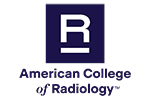Talking to your doctor about your radiology report
Thanks to technological advances and recent legislation, radiology exam reports are increasingly available via electronic health records and patient portal systems. As a result, you may see the report before your doctor has a chance to review it.
It’s important to remember that your radiology report is not written for you – it is written for your doctor. As a result, trying to understand your report – and its medical terminology – can be challenging (see the How to Read Your Radiology Report page). It may even cause you scanxiety, a term coined to discuss the stress and worry that may accompany a radiology exam (see the Scanxiety page).
Try not to make any assumptions about what the report says or means. Instead, focus on preparing to meet with your doctor to discuss the results.
The Diagnostic Question
Your doctor prescribed your radiology exam to answer a diagnostic question. The doctor will review the report within the context of your past and current medical history and explain what the next step is for your care.
As you review your report, write down any questions or concerns you have. Take these questions with you when you meet with your doctor to discuss your results. Organize your questions to make the best use of your appointment time and eliminate any questions that don’t or won’t help explain your results.
It’s helpful to organize your questions accordingly:
- Exam findings
- What the radiologist put in the impression section of your report
- Next steps
Exam Findings
Certainly, your most pressing question is a simple one: what did the exam find? What are the results? Your exam may have found nothing at all. Or the findings may be inconclusive or even incidental. Incidental findings are things a radiologist detects on your imaging study that are often asymptomatic and have no impact in your care. Sometimes, incidental findings can be significant and result in a change of care for yourself so it is important to ask your ordering doctor if a finding is concerning. Some centers may also allow you to speak with the radiologist to get their input on if they are concerned about a finding or not.
Report Impression
The doctor will tell you if they have a complete understanding of your condition. The impression the radiologist makes when interpreting your test may confirm the doctor’s initial diagnosis, or they may rule it out.
Next Steps
Based on the exam findings, your doctor may want to start treatment for your condition. If the findings were inconclusive or incidental, they may want to do more tests. Incidental findings often require different medical imaging techniques to better describe what the first test found.
If the doctor wants to do more testing, ask them to explain what they hope to find. This will help prepare you for the upcoming exam and your next discussion of the results report.
This page was reviewed on July 15, 2023



